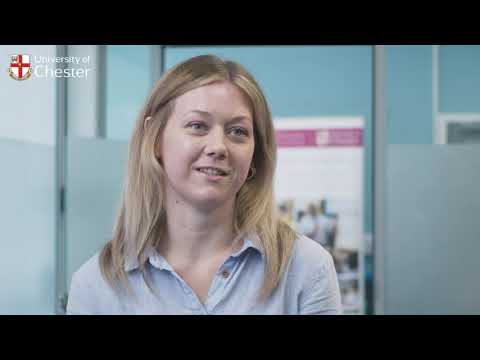Autism Spectrum Condition PGCert

You are viewing Course summary
Course Summary
Discover more about the lives of children, young people and adults with an Autism Spectrum Condition and how best to manage their learning differences in positive ways.
By the end of this course, you will have engaged with policy and practice and demonstrated informed perspectives about Autism Spectrum Condition (ASC) in educational settings. You will have developed key knowledge, understanding and skills around theoretical ideas and frameworks for supporting and managing those with ASC in different contexts.
You will study all aspects of ASC, particularly as it relates to educational context, and gain an in-depth perspective of autism theory, research and practice.
You will have opportunities to explore and discuss current educational developments in relation to the needs of children, young people and adults with ASC, which will help you to develop your existing professional practice.
We will encourage you to develop knowledge and skills which will enable you to reflect critically on current practice. You will also make informed assessments of the implications of research both nationally and internationally on professional practice.
What you'llStudy
Key knowledge areas are a firm grasp of autism as a condition and a systematic knowledge of the core areas of difference. In addition, you will gain an understanding of the ways in which autism affects individuals in terms of their education, their support needs and the wider community. During the course, you will study the following modules:
Module content:
- Examining the history and clinical epistemology of Autism Spectrum Condition
- Critically engaging with the current and psychological, sociological, neurological and clinical theories including recent changes in diagnostic criteria and their relationship to education
- Considering the implications of the research
- Making informed assessment of the implications of research on professional practice
Module aims:
- Deepen knowledge and understanding of Autistic Spectrum Condition.
- Investigate research which explores the most current neurological, psychological, and clinical research.
Module content:
- Exploring the impact child-centred approaches have had upon the teaching and learning of autistic individuals
- Evaluating the usefulness of alternative approaches
- Considering issues for socio–cognition communication and language
- Evaluating a range of strategies including the use of social stories in supporting classroom routine and change
- Evaluate your own practice
Module aims:
- Develop specialist skills in working with and teaching autistic children and young people.
- Evaluate strategies for improving opportunities for social engagement and learning for autistic children and young people.
Module content:
- Examining the wider issues of Autism in educational and social settings
- Considering the sensory differences of those with Autism
- Considering the effects of emotion, stress and anxiety and their response.
Module aims:
- To analyse research relevant to facilitating a wider understanding of Autism, the world as they see it and their response to it.
- To explore, understand and critically evaluate the range of issues which need to be considered when supporting autistic pupils in schools and the wider society.
- To investigate the scientific evidence surrounding the sensory differences of those with Autism and explore the link between behaviour and anxiety.

PG Cert Autism Spectrum Condition - University of Chester
There will be an opportunity to network with a range of professionals from different backgrounds.
Entry Requirements
2:2 honours degree
This course is open to both graduates and non-graduates who can demonstrate professional experience, although applicants will normally be graduates with a 2:2 honours degree or above. Non-graduates will be invited for interview.
Applicants will normally be working in, or aspiring to, a role in an SEN context or, wishing to acquire specialist knowledge and skills.
2:2 honours degree
This course is open to both graduates and non-graduates who can demonstrate professional experience, although applicants will normally be graduates with a 2:2 honours degree or above. Non-graduates will be invited for interview.
Applicants will normally be working in, or aspiring to, a role in an SEN context or, wishing to acquire specialist knowledge and skills.
Please note, this course is not eligible for progression to the Graduate Visa (PSW) or Skilled Worker Visa. It is not possible to upgrade from this course to the MA Autism Spectrum Condition.
English Language Requirements
For more information on our English Language requirements, please visit International Entry Requirements.
Fees and Funding
£2,925 for the full course (2025/26)
Guides to the fees for students who wish to commence postgraduate courses in the academic year 2025/26 are available to view on our Postgraduate Taught Programmes Fees page.
£15,000 for the full course (2025/26)
The tuition fees for international students studying Postgraduate programmes in 2025/26 are £15,000.
The University of Chester offers generous international and merit-based scholarships for postgraduate study, providing a significant reduction to the published headline tuition fee. You will automatically be considered for these scholarships when your application is reviewed, and any award given will be stated on your offer letter.
For more information, go to our International Fees, Scholarship and Finance section.
Irish Nationals living in the UK or ROI are treated as Home students for Tuition Fee Purposes.
Your course will involve additional costs not covered by your tuition fees. This may include books, printing, photocopying, educational stationery and related materials, specialist clothing, travel to placements, optional field trips and software. Compulsory field trips are covered by your tuition fees.
If you are living away from home during your time at university, you will need to cover costs such as accommodation, food, travel and bills.
The University of Chester supports fair access for students who may need additional support through a range of bursaries and scholarships.
Full details, as well as terms and conditions for all bursaries and scholarships can be found on the Fees & Finance section of our website.
Your Future Career
Job Prospects
Holders of the qualification will have the qualities and transferable skills necessary for supporting and advising on the management of those with ASC within educational and other settings requiring the exercise of initiative and responsibility and decision-making in complex and unpredictable situations. They will work from a value system that respects individual differences in children and young people and has an empathetic understanding of family and cultural diversity.
Careers service
The University has an award-winning Careers and Employability service which provides a variety of employability-enhancing experiences; through the curriculum, through employer contact, tailored group sessions, individual information, advice and guidance.
Careers and Employability aims to deliver a service which is inclusive, impartial, welcoming, informed and tailored to your personal goals and aspirations, to enable you to develop as an individual and contribute to the business and community in which you will live and work.
We are here to help you plan your future, make the most of your time at University and to enhance your employability. We provide access to part-time jobs, extra-curricular employability-enhancing workshops and offer practical one-to-one help with career planning, including help with CVs, applications and mock interviews. We also deliver group sessions on career planning within each course and we have a wide range of extensive information covering graduate jobs and postgraduate study.







